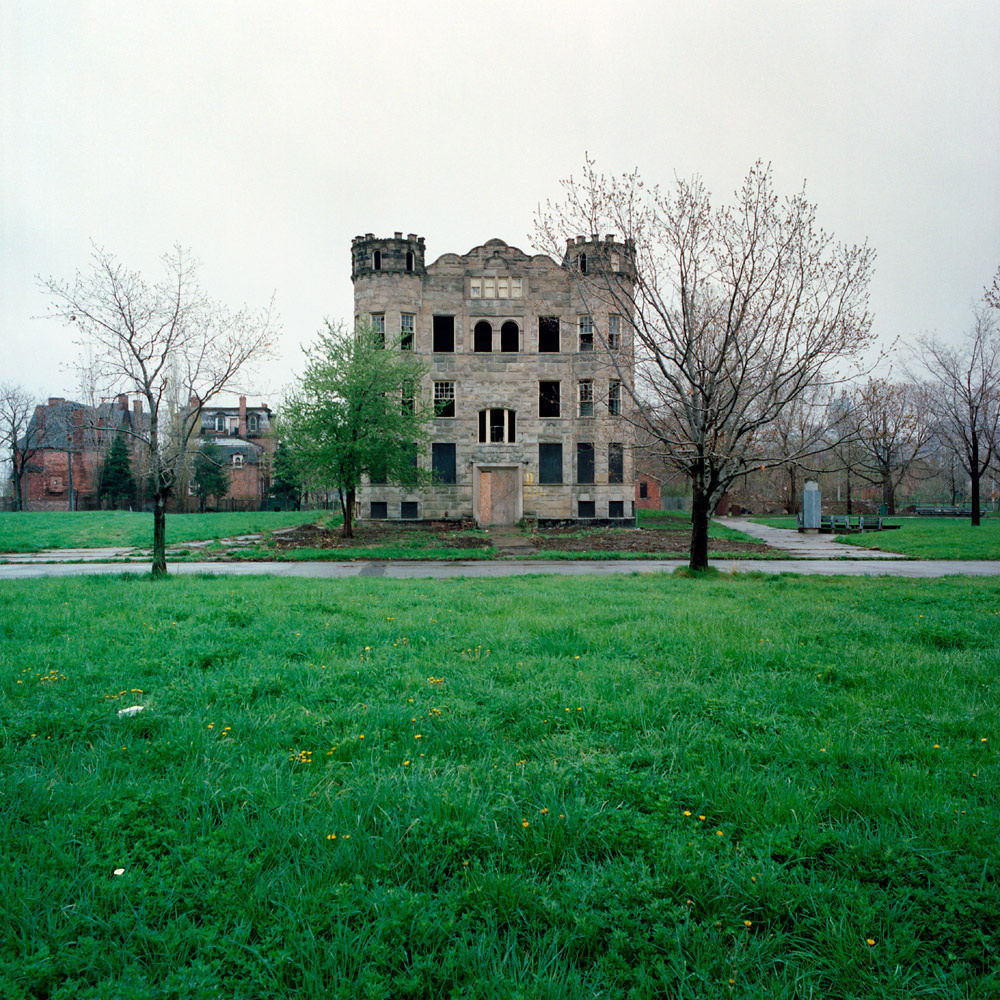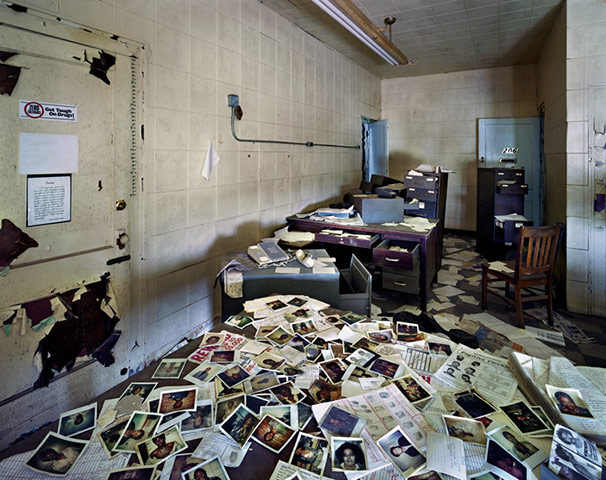http://www.bloomberg.com/news/2012-...-streetlights-may-go-out-as-city-shrinks.html
Detroit, whose 139 square miles contain 60 percent fewer residents than in 1950, will try to nudge them into a smaller living space by eliminating almost half its streetlights.
As it is, 40 percent of the 88,000 streetlights are broken and the city, whose finances are to be overseen by an appointed board, cant afford to fix them. Mayor Dave Bings plan would create an authority to borrow $160 million to upgrade and reduce the number of streetlights to 46,000. Maintenance would be contracted out, saving the city $10 million a year.
Other U.S. cities have gone partially dark to save money, among them Colorado Springs; Santa Rosa, California; and Rockford, Illinois. Detroits plan goes further: It would leave sparsely populated swaths unlit in a community of 713,000 that covers more area than Boston, Buffalo and San Francisco combined. Vacant property and parks account for 37 square miles (96 square kilometers), according to city planners.
You have to identify those neighborhoods where you want to concentrate your population, said Chris Brown, Detroits chief operating officer. Were not going to light distressed areas like we light other areas.
Detroits dwindling income and property-tax revenue have required residents to endure unreliable buses and strained police services throughout the city. Because streetlights are basic to urban life, deciding what areas to illuminate will reshape the city, said Kirk Cheyfitz, co-founder of a project called Detroit143 -- named for the 139 square miles of land, plus water -- that publicizes neighborhood issues.
Rethinking Detroit
It touches kids going to school in the dark, said Cheyfitz, chief executive of Story Worldwide Ltd., a New York marketing company. It touches midnight Mass at a church. It touches businesses that want to stay open past 9 p.m.
Bing in 2010 began an independent project called Detroit Works to sort ideas on how to reconfigure the city for residences, businesses, green space and even agriculture, a plan due in August.
Meantime, Brown said, the city will fix broken streetlights in certain places even as it discontinues such services as street and sidewalk repairs in distressed areas -- those with a high degree of blight and little or no commercial activity.
Bings plan requires state legislation to create the lighting authority. Governor Rick Snyder supports the plan, said his senior policy adviser, Valerie Brader.
Dark Portents
Theres already experience snuffing out streetlights within Detroits borders. Highland Park, a 3-square-mile city encircled by its larger neighbor, removed 1,100 of 1,600 streetlights last year, after piling up a $4 million debt to DTE Energy. The move saves $45,000 a month, said Alejandro Bodipo-Memba, a spokesman for the company.
Only major streets and intersections remain lit in the city of 12,000, once home to Chrysler Group LLCs namesake car manufacturer and Henry Fords first moving assembly line. Mayor DeAndre Windom, 45, said residents at first complained, though few do now. Hes considering grants and private funding to relight darkened streets
Colorado Springs pulled the plug on 9,000 of its 25,600 lights in 2010 to save $1.3 million, said David Krauth, a city traffic engineer. Some were relit as revenue improved, though 3,500 remain dark, saving about $500,000 a year, he said.
In Detroit, some streets have no working lights. Many appear dim or are blocked by trees. And some areas with mostly vacant lots are well-lit.
Night Terrors
A single, broken streetlight on the northeast side brings fear to Cynthia Perry, 55. It hasnt worked for six years, Perry said in an interview on the darkened sidewalk where she walks from her garage to her house entrance.
Im afraid coming in at night, she said. Im not going to seclude myself in the house and never go anywhere.
In southwest Detroit, businesses on West Vernor Highway, a main commercial thoroughfare, have sought $4 million in private grants to fix the situation themselves. The state would pay $2.5 million, said Kathy Wendler, president of the Southwest Detroit Business Association.
Jamahl Makled, 40, said hes owned businesses in southwest Detroit for about two decades, most recently cell-phone stores. He said theyve have been burglarized more than a dozen times.
In the dark, criminals are comfortable, Makled said. Its not good for the economy and the safety of the residents.
Antique Lamps
North of there, on a stretch of West Grand Boulevard, the bases of light poles show where thieves tore out the wiring.
As many as 15,000 Detroit streetlights use 1920s technology, according to a 2010 study by McKinsey & Co. Upgrading the system would cost $140 million to $200 million, and $5 million more to operate than the $23 million now spent annually, the report said.
Besides streetlights, the Detroit lighting department provides electricity to 144 customers that include Detroit schools, Wayne State University and local government offices. Almost 22 percent of the citys electric bills were unpaid, the McKinsey report said.
Thats just one reason Detroit is digging out of a $265 million deficit and saddled with more than $12 billion in long- term debt. To avoid a state takeover, Detroit agreed in April to have its finances overseen by a nine-member board appointed by the city and the state.
Civic Obligations
Delivering services to a thinly spread population is expensive. Some 20 neighborhoods, each a square mile or more, are only 10 to 15 percent occupied, said John Mogk, a law professor at Wayne State University who specializes in urban law and policy. He said the city cant force residents to move, and its almost impossible under Michigan law for the city to seize properties for development.
Mogk said landowners can demand many times what property would fetch on the open market.
There are tremendous political, administrative, financial and, to some degree, legal obstacles, Mogk said. Unless you phase out a neighborhood altogether, you still need lighting, and waste pickup and police and fire protection.
As Detroits streets go dark, some of those neighborhoods may fade away with the dying light.



